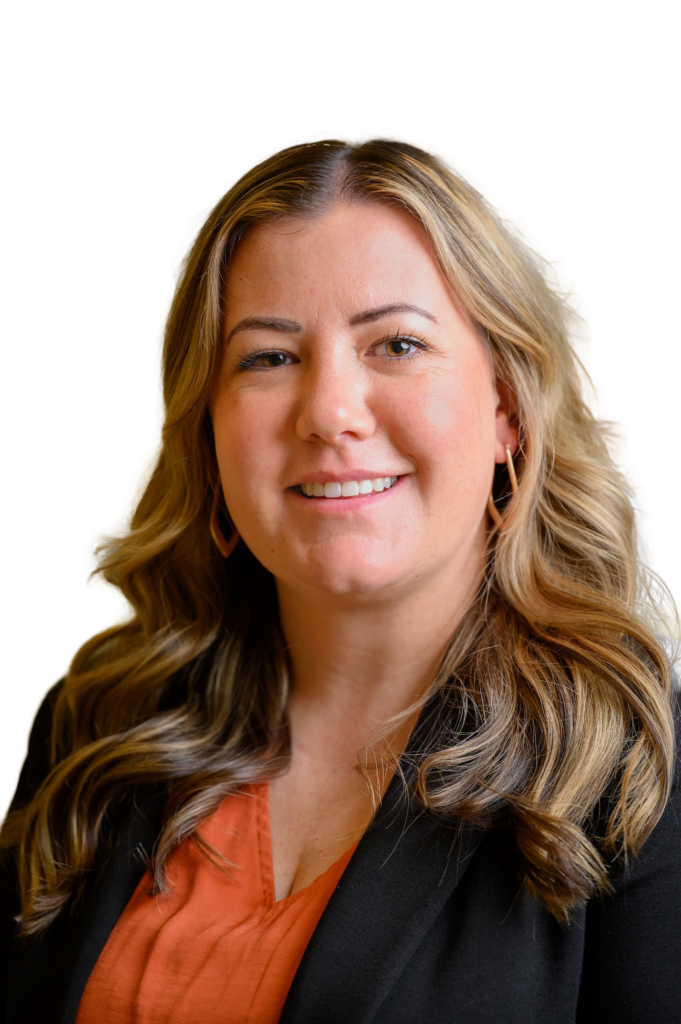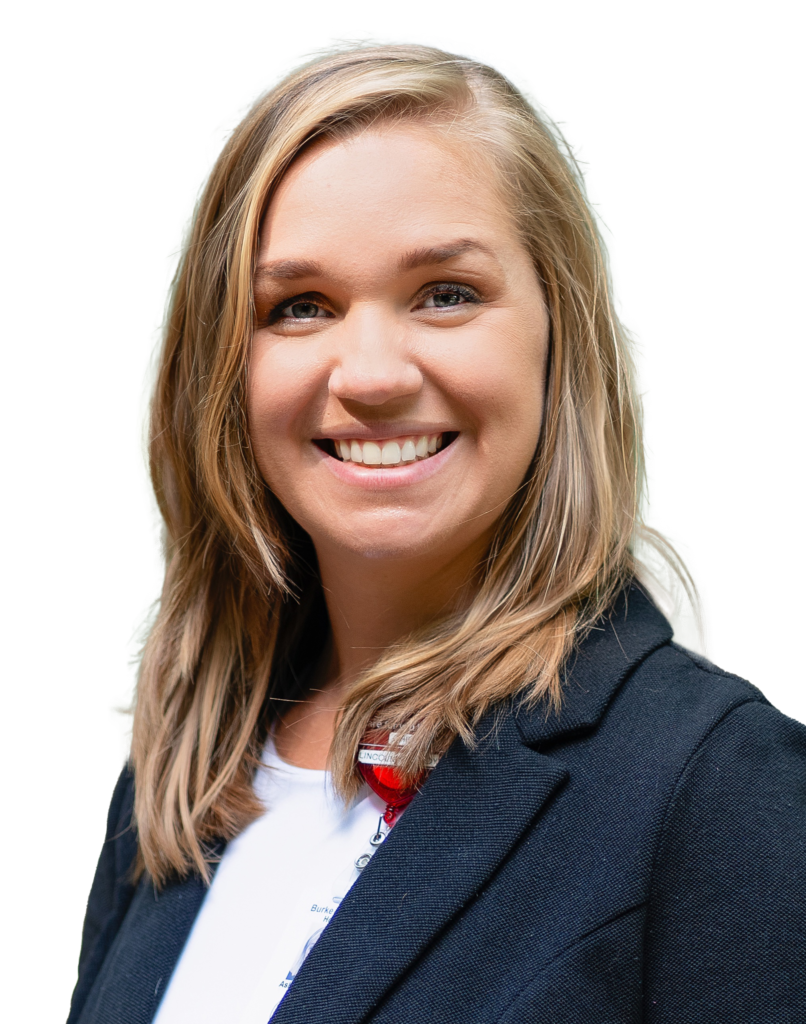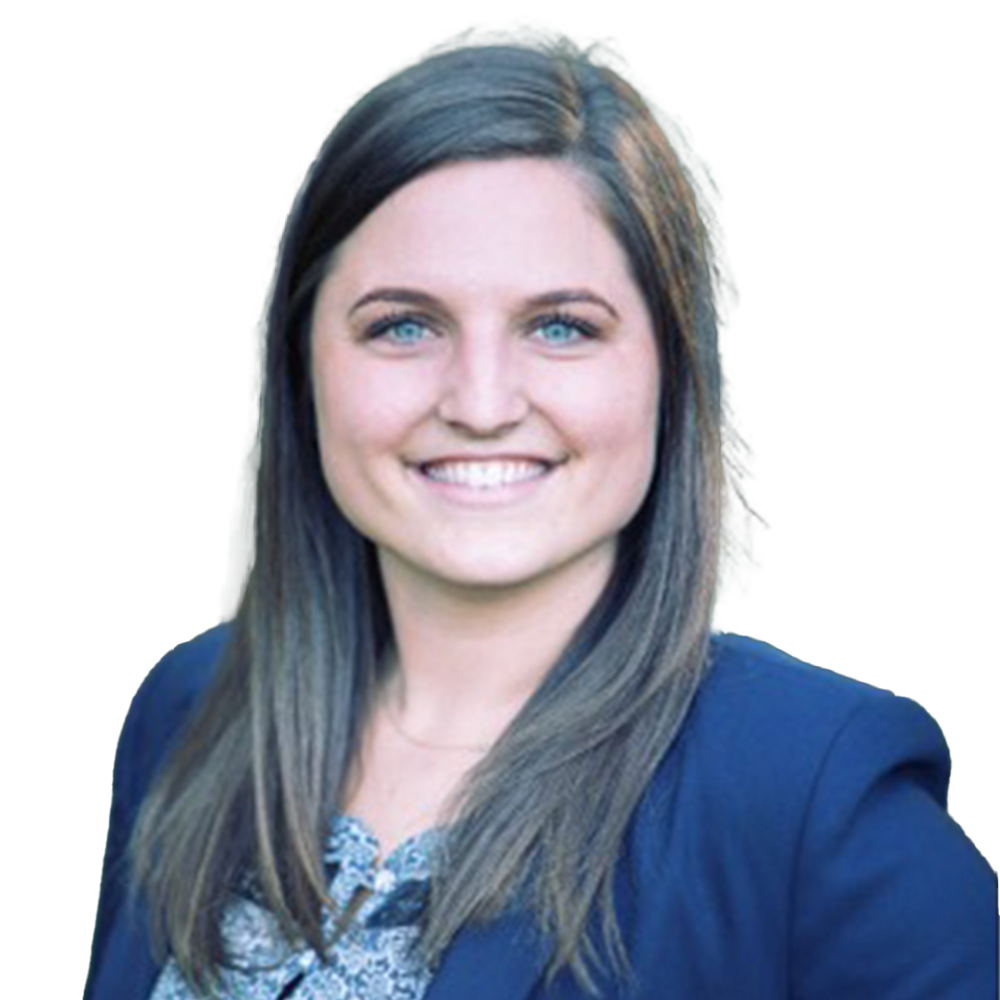FHLI's Bernstein Fellows represent the future of health care leadership in North Carolina.
In all corners of our state, FHLI’s Bernstein Fellows work with rural and underserved communities identify actionable solutions to the pressing health disparities that far too many still face. Meet FHLI’s 2022-2024 class of Fellows.

Jamie Burgess-Flowers, MSW, LCSW
Assistant Professor and Director of Integrated and Applied Behavioral Sciences | High Point University
Project Title: The WSDM Connects Initiative
My project, the Workman School of Dental Medicine (WSDM) Connects Initiative, addresses community-identified oral health needs through innovative strategies that leverage the resources of the academic dental medicine training program.
The initiative builds partnerships that bridge oral health care gaps in the Triad region through
- Strategic referral pathways
- Employee health partnerships
- Service days
- Workforce development
- Donating oral hygiene supplies
- Mobile, accessible care
This ongoing, multifaceted approach aims to sustainably improve oral health outcomes and enhance the overall health and well-being of the community that the WSDM serves.

Khristian Curry, MPH
Project Director | North Carolina Institute of Medicine
Project Title: Uplifting Black and Brown Lactation Success Conference
For my project, I partnered with the NC A&T Pathway 2 Human Lactation Program to chair the planning committee for the nation’s first lactation conference at an HBCU . The Uplifting Black and Brown Lactation Success (UBBLS) Conference, held August 07-09, 2024, in Greensboro, aimed to address both the disparities in maternal health outcomes and lower breastfeeding rates among Black and Brown communities.
We focused on dismantling structural barriers, promoting professional development, and fostering collaborative support. The event provided a platform for dialogue, education, and partnership among NC’s maternal health professionals, strengthening relationships and facilitating professional and educational advancement in the maternal health workforce.

Dr. Brandy Harrell, LCAS, CCS, LCSWA, SAP, DAC
Project Title: Rural Resiliency Approach: An Innovative Approach to Integrated Care
For my project, I provided justice-involved residents of Lenoir County with integrated health care services, including medication-assisted treatment. The goal was to establish a systematic approach to delivering services to reduce recidivism rates, contributing to a safer and healthier community. I also served as the Behavioral Health Director of Kinston Community Behavioral Health Center. Cultivating a partnership with the Family Accountability and Recovery Court (FARC) allowed me to provide education about treatment best practices and assist in securing funding. FARC continues to make strides and support whole-person care.

Ashley Jarrett, BSN, RN
Project Title: Building a Street Medicine Team in Rural WNC
My Bernstein project continued building the Burke Street Medicine Team. This multidisciplinary backpack medicine team provides primary and mental health care to residents living on the streets in Burke County. The ongoing initiative involves building a multidisciplinary coalition, addressing social drivers of health, and using design thinking for patient-centered care. This project continues to grow through partnerships with organizations such as UNC Gillings School of Global Public Health and Innovate Carolina. Currently, a re-design process with rapid prototyping and implementation is underway. Future efforts will focus on scaling the program, sustainability, and building a robust evidence base through research and evaluation to expand this community-driven model across NC.

Savannah Junkins, MPAS, PA-C
Project Title: Expanding Harm Reduction: Integrating Syringe Services Programs and Primary Care
I designed my project to integrate evidence-based harm reduction strategies into a primary care setting offering substance use treatment. Carolina Family Health Centers (CFHC), a federally qualified health center in eastern North Carolina, partnered with two local health departments to become an extension site for established syringe services programs (SSP).
The program provides access to supplies that reduce the risk of overdose, infectious disease transmission, and other complications in a safe, trusted environment, demonstrating respect for patients at all stages of recovery.
Due to the project, CFHC received a grant from the NC Injury and Violence Prevention Branch to expand these efforts over the next three years.

Shaunessy Lofton, MPH
Project Title: Empowering Change: The Impact of Community Health Workers in Transforming Clinic Systems and Equity
For my project, I assessed the effectiveness of a pioneering health equity pilot program by examining the integration and influence of Community Health Workers (CHWs) within Federally Qualified Health Centers (FQHCs). Through a structured reflection on their contributions and impact, I highlighted the role of CHWs in driving systemic change and advancing health equity.
During the COVID-19 pandemic, health leaders recognized the importance of CHWs and launched various pilot programs to integrate them into health systems. The evidence gathered from these pilots underscores the significant impact of CHWs in addressing health disparities and highlights the need for continued support and integration of these essential workers into public health strategies.

Rachael Pennell, MSW, LCSW
Project Title: Suicide Safer Care
My project focused on improving and standardizing suicide risk screening, severity assessments, and safety planning across the health center through a multi-phase approach that included:
- A needs assessment.
- Staff training.
- Creation and implementation of new clinical procedures.
- Creation and implementation of new internal procedures.
- Community education and prevention.
I facilitated a company-wide Suicide Safer Care training and created a quality improvement subcommittee. We also adapted the Stanley & Brown Safety Plan Worksheet to use with patients at risk of suicide and created an internal postvention procedure to manage staff suicidality and respond if a staff member dies by suicide. Lastly, my team plans to target prevention through community education.
